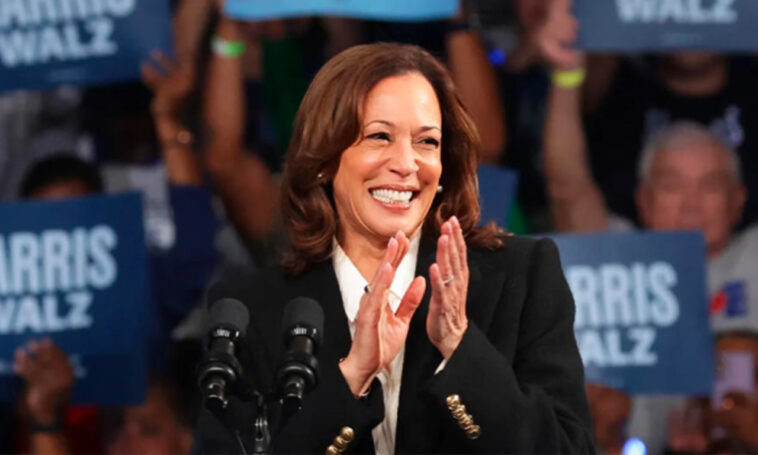Vice President Kamala Harris’s presidential campaign, now facing significant debt, spent a staggering $2.6 million on private flights during October. This expenditure comes as the campaign grapples with scrutiny over its financial decisions after losing the recent election to President-elect Trump. The campaign’s total spending has reached approximately $1 billion, leaving it with an estimated $20 million in debt. Critics point to these lavish expenses, including payments to private flight services, as evidence of mismanagement in a campaign that previously emphasized climate change as a critical issue. The financial implications of these choices are causing concern as the campaign navigates its future.
Vice President Kamala Harris’s presidential campaign is under fire after reports revealed that it spent $2.6 million on private flights in October alone. This revelation comes from Federal Election Commission (FEC) documents obtained by Fox News Digital. As the campaign faces scrutiny over its financial decisions following its recent defeat to President-elect Trump, this extravagant spending raises questions about the campaign’s priorities and financial management.
Critics of the Harris campaign are particularly concerned about the implications of using private jets. Private aviation is known to emit more greenhouse gases per passenger than commercial flights. This is especially troubling given Harris’s past statements on climate change, which she has described as an “existential threat.”
In a 2019 interview with CNN, she stated, “There’s no question we have to be practical. But being practical also recognizes that climate change is an existential threat to us as human beings.”
Harris’s acknowledgment of climate change issues raises questions about the campaign’s commitment to these values, especially in light of its significant private flight expenses.
The Harris campaign, which reportedly spent around $1 billion during its run, is currently estimated to be $20 million in debt. The release of the FEC filings has shed light on the campaign’s significant expenses in the final weeks leading up to the election. According to the records, the $2.6 million spent on private flights consisted of numerous disbursements ranging from $3,500 to $940,000. Of this amount, approximately $2.2 million went to Private Jet Services Group, while Advanced Aviation Team, a charter flight broker, received around $430,000.
This spending trend is not new. In September, the Harris campaign had already spent $3.1 million on private flights, bringing the total flight-related expenses to over $10 million since July. Such numbers have sparked criticism, particularly considering the financial state of the campaign. Many observers question the wisdom of such high expenditures when the campaign was facing significant debt.
Further scrutiny has been directed at other financial decisions made by the campaign. Notably, Harris’s team paid $1 million to Oprah Winfrey’s production company after the television star spoke at a rally on October 15. In addition, the campaign allocated $4 million to Village Marketing Agency, which connects clients with social media influencers. Moreover, FEC records indicate that at least $15 million was spent on “event production.” These costs contribute to an impression of lavish spending amidst a backdrop of debt.
The juxtaposition of lavish spending against a backdrop of debt and environmental concerns has led to increased scrutiny of Harris’s campaign. Many voters and political analysts are left wondering whether the financial strategies employed were appropriate and whether they reflect the values the campaign has sought to promote. The campaign’s approach has come under fire from both political opponents and environmental advocates who view these expenditures as contradictory to the stated goals of sustainability and fiscal responsibility.
As the Harris campaign continues to navigate the aftermath of the election, the implications of these financial choices will likely reverberate. The campaign faces not only the challenge of addressing its debt but also the task of rebuilding trust with supporters and voters who may feel disillusioned by these revelations. Moving forward, it will be crucial for the campaign to demonstrate a commitment to more responsible financial practices and a genuine dedication to addressing pressing issues such as climate change.
The $2.6 million spent on private flights in October reflects broader concerns about the financial management of Vice President Kamala Harris’s campaign. As the campaign grapples with substantial debt and public scrutiny, it must confront the consequences of its spending decisions. Balancing the demands of running a campaign while remaining true to its values will be a critical challenge in the months ahead. The path forward for Harris and her team will require a careful reassessment of priorities and a renewed commitment to transparency and accountability in the face of significant challenges.






Join the Community and Be a Part of the Conversation
You must be logged in or registered to post a comment.